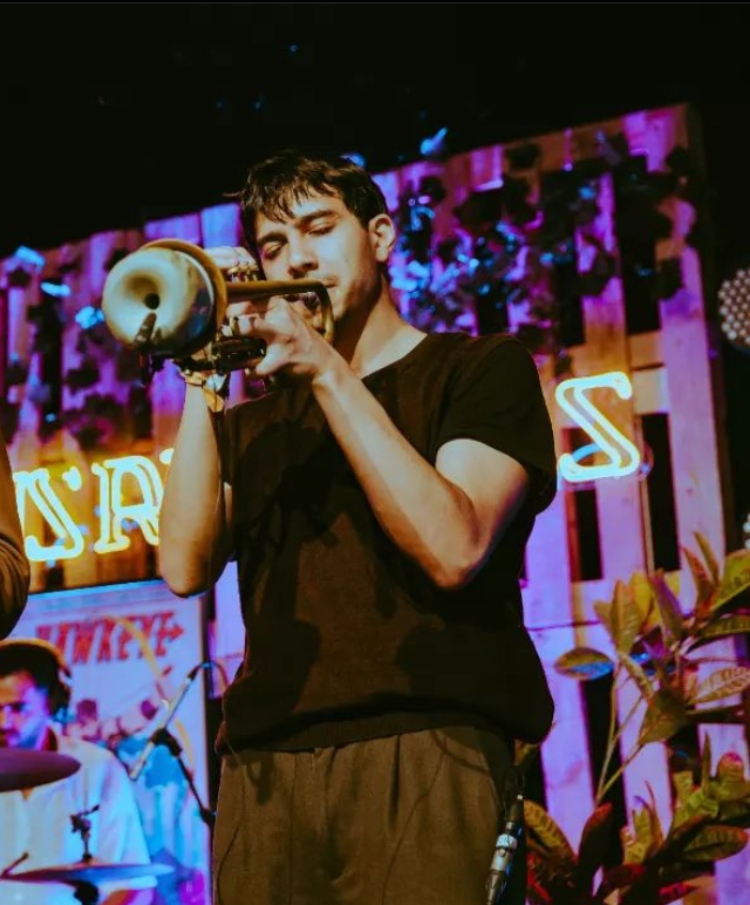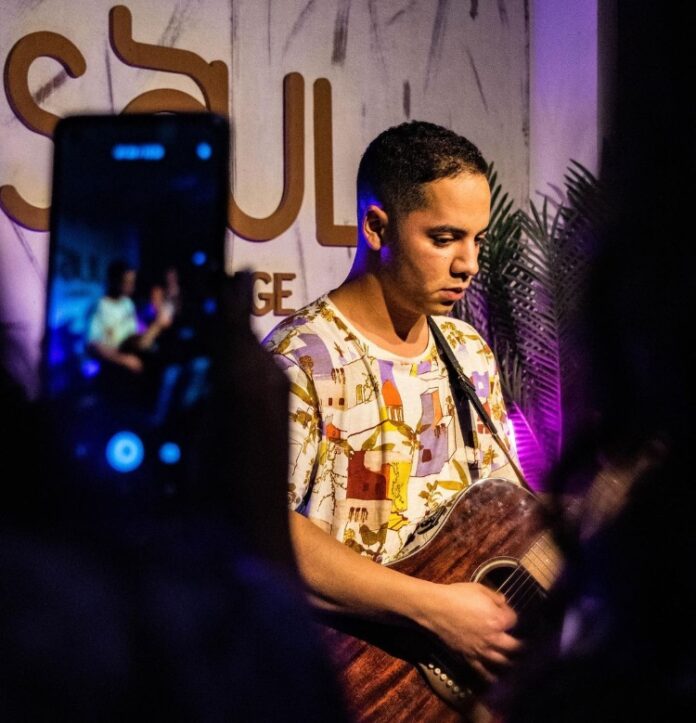Hybrid Monkey’s Jungle of Challenges: Crafting a Unique Sound in Egypt
Hybrid Monkey navigates Egypt’s burgeoning music scene, highlighting the struggle for independent artists to secure spots amidst the trap and hip-hop wave domination.
He suggests that “the Egyptian music scene is undeniably expanding, yet it faces challenges with limited venues for independent artists. With only three or four main event spaces, seasoned artists find themselves repeatedly performing in the same locations.”
Hybrid Monkey advocates for transformative venues that harmonize fairer earnings distribution for artists. Release parties and debut invites could unlock doors for indie musicians, overshadowed by mainstream genres.
The Indie musician told us that “Social media serves as a crucial tool for connecting artists with fans, producers, and studios, albeit with the added challenge of artists having to multitask various roles, including content creation, networking, managing, marketing, and, most importantly, songwriting and production.”
Muhammad Barakat’s Sonic Journey: Breaking Free from Monotony
While Egypt’s indie scene blossoms, artists like Muhammad Barakat face challenges in breaking away from genre monopolization and trend fixation. Barakat reflects on the lack of diversity in audiences hindering the growth of indie music beyond rap and drill.
“A cultural tug-of-war challenges societal norms, impeding the flourishing of a richer musical tapestry,”he mentions during the interview. Envisioning the future, Barakat hopes for a more eclectic audience embracing varied genres, free from the shackles of mainstream trends.
Barakat also thinks that online music platforms become vital for indie growth, but Barakat proposes a radical shift in venues supporting indie debuts and hosting diverse lineups, aiming for a harmonious blend that resonates with a broader audience.

Aly Absalam’s Vision: Breaking the Chains of Venue Secrecy
Aly Absalam delves into the complexities of entering Egypt’s music scene, emphasizing the importance of networking in unlocking elusive venue opportunities.
He proposed to us that “the challenge lies in the scarcity of venues, creating a steep but surmountable climb for musicians.” Absalam envisions a shift towards original indie artists, urging a tilt away from hit tracks and pop anthems. He advocates for more slots for indie musicians on the road to recognition.
Social media proves a vital ally but requires adept content creation. Dreaming of a more inclusive stage, Absalam recommends that venues play a pivotal role beyond performances, offering accessible opportunities for musicians to record live acts.

The symphony of voices seeks to break free from the constraints of mainstream melodies, fostering a promising future where Egypt’s musical odyssey embraces diversity, innovation, and inclusivity.
Only time will unveil the unfolding chapters of this dynamic journey, but the resounding crescendo suggests that change is on the horizon for Egypt’s indie music scene.




